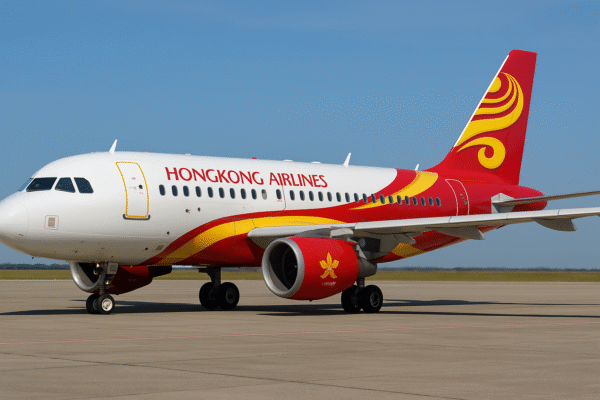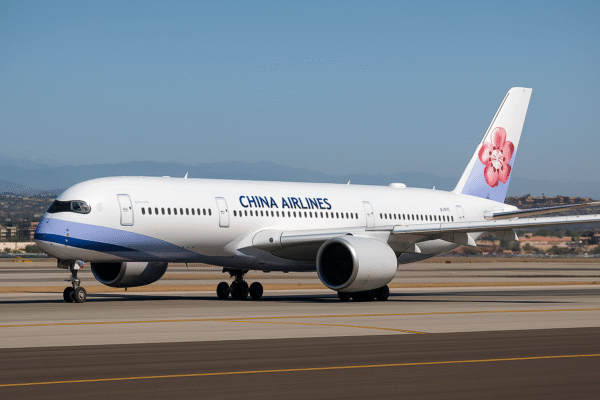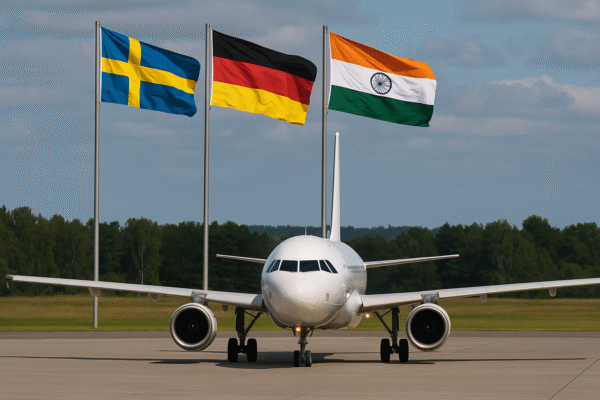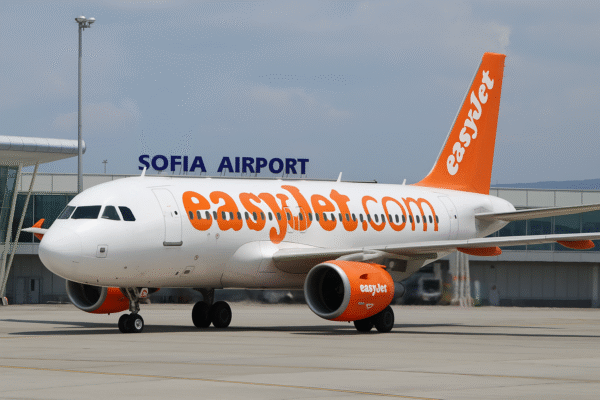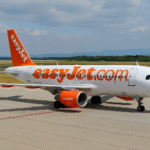Sofia, Bulgaria – July 22, 2025 — In an unexpected turn of events for UK-bound travelers, EasyJet flight EZY3282 from the Turkish resort city of Dalaman to Edinburgh was forced to make an unscheduled landing at Sofia Airport in Bulgaria due to a technical fault mid-flight. What started as a routine night flight for dozens of passengers turned into an overnight travel disruption with hotel accommodations in a city they hadn’t intended to visit.
The aircraft, a part of EasyJet’s Airbus A320 family, took off shortly before midnight local time on July 22, with an original scheduled arrival at Edinburgh Airport by 12:45 a.m. BST on July 23. However, about two hours into the flight, the crew detected a technical anomaly that required an immediate diversion. The flight rerouted over Serbian airspace and headed south to Sofia, escorted by Bulgarian air traffic authorities, where it landed safely.
What Caused the Diversion?
While EasyJet has not publicly disclosed the precise nature of the technical problem, industry experts suggest such diversions are generally prompted by sensor alerts, hydraulic system irregularities, or electrical malfunctions. Though typically non-life-threatening, aviation safety standards dictate that any potential risk must be addressed immediately.
Given the flight’s altitude and position, Sofia Airport was the most viable alternative for emergency landing. The airport is a well-equipped international hub capable of handling diversions, and it promptly activated emergency protocols to receive the aircraft.
Swift Passenger Support and EU Travel Rights
Upon landing, EasyJet staff and Sofia Airport personnel coordinated efforts to provide support to all passengers on board. Travelers were offered hotel accommodations, meal vouchers, and regular updates as required under EU Regulation 261/2004, which protects passengers in cases of long delays, cancellations, or diversions.
The airline arranged an alternative flight to Edinburgh the following morning, minimizing disruption and enabling travelers to continue their journey with minimal inconvenience. While EU261 rules do not mandate monetary compensation for safety-related diversions, they do enforce obligations for passenger care — obligations that EasyJet appeared to meet fully in this instance.
Passenger Response and Crew Communication
Several passengers took to social media to commend the cabin crew for maintaining transparency and calm throughout the unexpected diversion. According to one traveler, “We were kept informed throughout the flight and reassured that everything was under control. The landing in Sofia was smooth, and we were well taken care of afterward.”
Maintaining communication in real time is a vital part of reducing anxiety during in-flight disruptions, and EasyJet’s handling of the incident reflects a growing trend among budget airlines to prioritize customer service during operational interruptions.
Travel Disruption Trends and Aviation Resilience
This incident comes amid a season of heightened travel disruptions across Europe. A mix of air traffic control strikes, rising passenger demand, and technical delays have impacted numerous flights this summer. EasyJet, like many European carriers, has had to juggle growing demand while maintaining older aircraft amidst tight maintenance schedules.
According to the European Union Aviation Safety Agency (EASA), such diversions — though relatively rare — are a normal part of airline operations and indicate that safety protocols are functioning as intended. The airline’s decision to prioritize safety by diverting the flight exemplifies industry best practices.
What This Means for Future Travelers
Travelers heading to and from tourist hotspots like Dalaman, a popular gateway to Turkey’s Aegean coast, should be aware of possible disruptions, especially during the busy summer months. For those planning holidays or returning to the UK, being familiar with your airline’s policies and the EU261 regulations is crucial.
Tips for Travelers Facing Mid-Flight Diversions or Delays:
- Stay calm and listen to crew announcements.
- Check your airline’s official channels for updates.
- Retain all travel receipts and documentation.
- Ensure your travel insurance covers delays or diversions.
- Know your rights under EU261.
Sofia as a Safe Haven Stopover
While unexpected, Sofia proved to be a competent host. Some passengers even noted the opportunity to experience a brief view of Bulgaria’s capital — known for its historical sites and vibrant architecture — albeit under unforeseen circumstances. Sofia Airport’s rapid coordination and hospitality underscored its role as a reliable secondary hub in the Balkan aviation network.
Conclusion: Safety First, Always
The diversion of EasyJet flight EZY3282 serves as a reminder that passenger safety remains the top priority in global aviation. Though disruptive, the airline’s quick decision to land in Sofia avoided further complications and highlighted the preparedness of European aviation networks to handle emergencies efficiently.
As air travel continues to rise in 2025, such incidents emphasize the importance of robust infrastructure, clear communication, and passenger-centered service — traits that EasyJet and Sofia Airport demonstrated during this event. For travelers, staying informed and adaptable remains key in a dynamic global travel landscape.
For more travel news like this, keep reading Global Travel Wire













